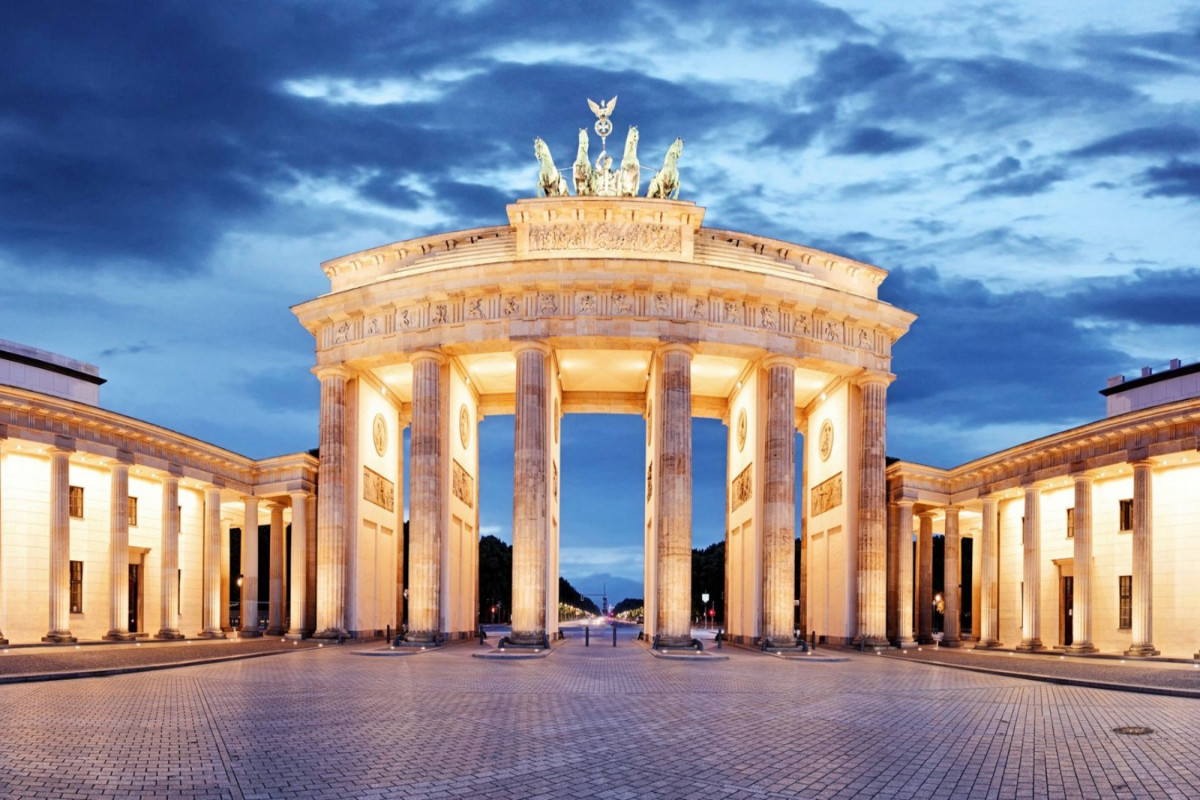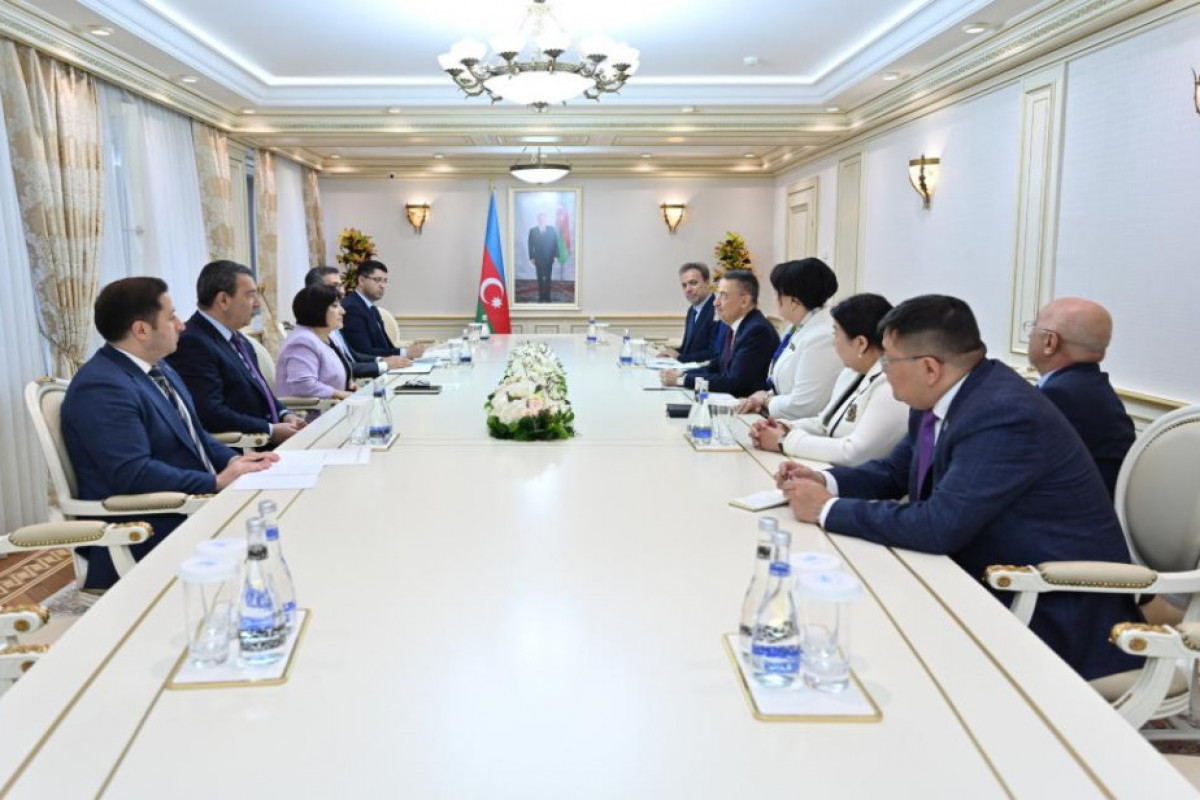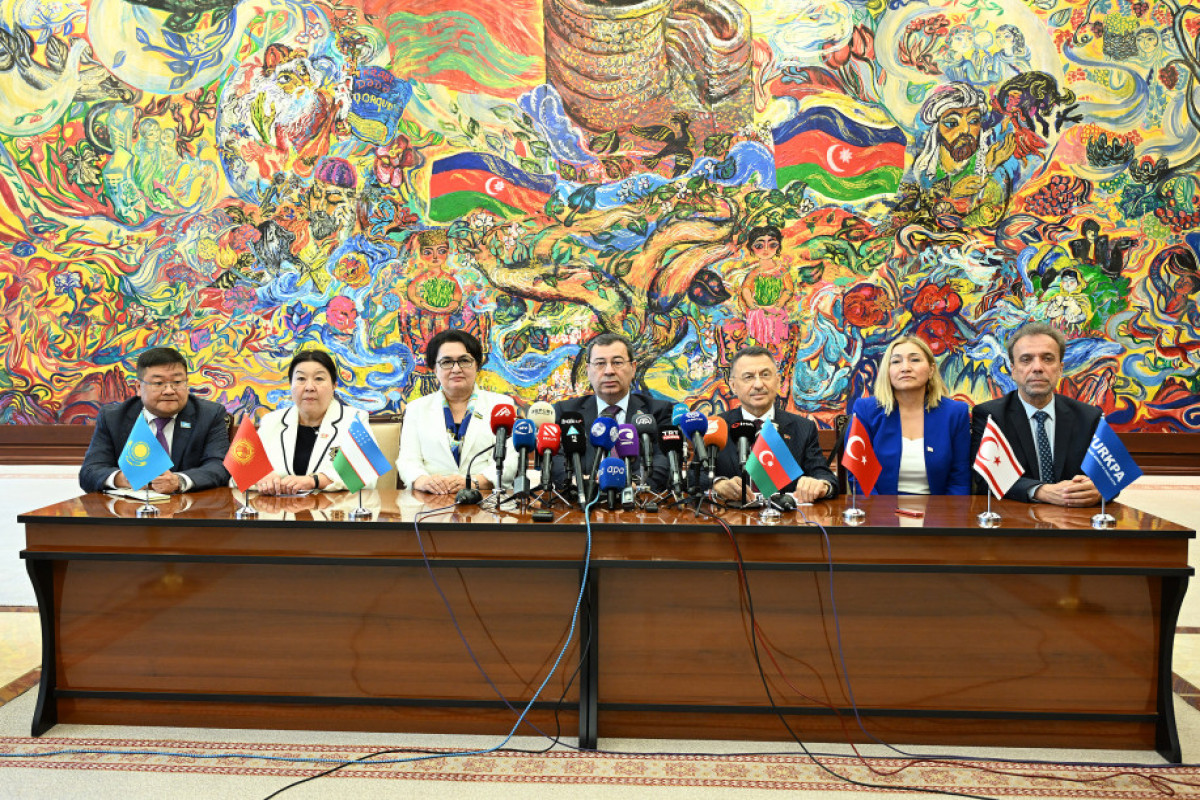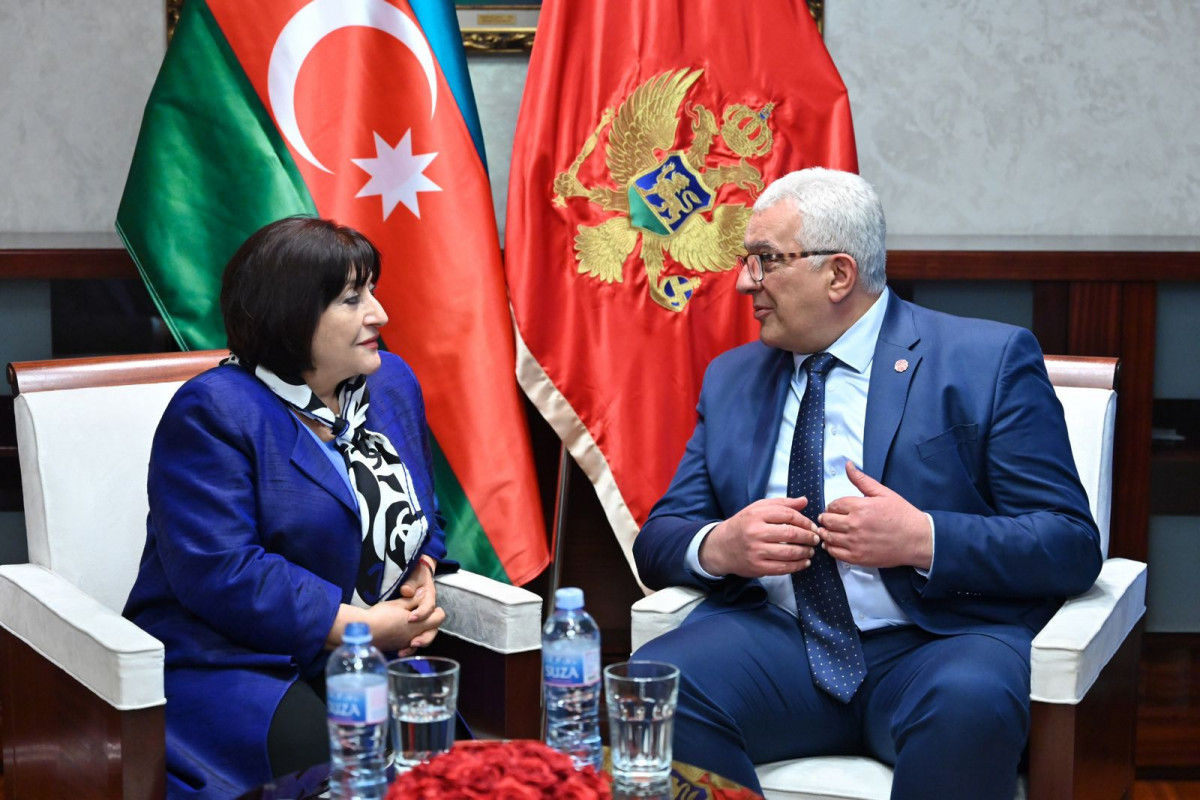Q. This year Azerbaijan and Hungary celebrate the 25th anniversary of the establishment of diplomatic relations. These countries also enjoy a strategic partnership. How do you asses the current state of relations between the two countries?
A. In 2014 during President Ilham Aliyev’s visit to Budapest, a Joint Declaration on Strategic Partnership was signed. This partnership covers the development of the bilateral cooperation in all spheres: political, economic, cultural and humanitarian also. The high level political dialogue is very active and the political relations are excellent. They are not burdened with tensions or open questions. In fact, the common historical roots and the sympathy between our peoples provide an excellent basis for co-operation. I would like to emphasize the successful work of the Intergovernmental Committee, which next session will be held this year in spring in Hungary. We are also working on President Aliyev’s visit to Budapest. Earlier our leaders met in every two years, but from 2016 they will meet every year, which makes the cooperation more intensive and active. Let me here avail to the opportunity to promote our planned cultural programmes in this year. In cooperation with the Heydar Aliyev Foundation and the MFA of Hungary on the 16-17th of March the Embassy will organize a number of cultural and scientific event in the framework of project tiled “Hungarian Days in Baku”. In the frame of these days book and movie presentation, fashion day, art exhibitions, concerts and gastronomic event will take place in Baku. We are also planning to organize some cultural and scientific events in autumn of 2017, dedicated to the anniversary of the great Hungarian composer and teacher, Zoltán Kodály, and also to the “Greatest Hungarian”, István Széchenyi.
Q. What about Azerbaijan-Hungary economic ties? How much was the trade turnover between Azerbaijan and Hungary last year?
A. About the economic relations I can say, that over 50 percent of the Hungarian trade volume with the South Caucasus region accounts for Azerbaijan. A steady growth of trade has been observed since 2013. In the year 2015 the bilateral trade turnover was 66 million USD, in the first eleven month of the last year it was about 50 million USD. The main positions of Hungarian export are: the well-known pharmaceuticals, agrarian products and technologies, electrical machines and equipment, SUZUKI cars, food items, beverages, cattle. Apart from the increase in trade turnover the primary goal is the promotion of mutual investments, and with our Azerbaijani partners we’ve developed the project-based, long-term cooperation, based on advanced technologies. The Hungarian companies are ready to cooperate with Azerbaijan in agriculture, ICT sector, urban planning, energy efficiency, road and infrastructure construction, water-supply and management, in the field of environment, and health industries. The Hungarian economic grow has created enormous opportunities for strategic cooperation with Azerbaijan. Hungary is a good platform for Azerbaijani investors.
Q. This year, Hungary is acting as NATO’s Resident Coordinator in Azerbaijan. What are your plans in the framework of this mandate? In general, what is your view of the relations between NATO and Azerbaijan?
A. Hungary and the Hungarian Embassy in Baku will promote the image of Azerbaijan as a reliable and credible Partner for NATO, as it really is. We will keep communication channels open between NATO and Azerbaijan, facilitate high level political exchanges, organize meetings, seminars, and support NATO visits to Azerbaijan, as well. Moreover, we intend to support and facilitate Azeri educational and media institutions to visit NATO Headquarters in Brussels. We will communicate NATO’s strategy after NATO summits and important meetings, and I’m ready to give interviews to the media to facilitate understanding what we are doing here in Azerbaijan, what NATO does out there in the global security environment. As the NATO Contact Point Embassy in Azerbaijan we are also planning to organize a sizable conference on regional security issues in the second half of 2017.
Azerbaijan joined the Individual Partnership Action Plan (IPAP) program in 2004, but even before the country was ready for tailor-made cooperation with NATO. This means that Azerbaijan distinguished herself from the very beginning of the cooperation with NATO. Good example for it is that Azerbaijan joined the PfP Presentation Document in 1996 and the Planning and Review Process (PARP) in 1997. The country has successfully already completed 4 IPAP cycles, starting from 2005. As a result of successfully completed IPAP cycles, the Azeri Defence Forces are capable of fulfilling their national obligations, participate in NATO-led operations and cooperate with other PfP armies, or train for example soldiers of the Afghan National Army. These are huge achievements and based on the reform of their Defence Forces, the reform of the entire military establishment. The people of Azerbaijan are rightfully proud of their National Armed Forces. Part of these forces operate according to NATO standards, participate in NATO-led operations, energy security, civil emergency planning and addressing emerging security challenges.
NATO political and military leadership, and also all the member nations – including Hungary - highly appreciate Azerbaijan’s contribution to NATO-led military operations. NATO Secretary Generals repeatedly expressed their highest appreciation to Azerbaijan for participating in NATO mission in Kosovo and Afghanistan. Secretary General Rasmussen thanked President Ilham Aliyev during his visit to NATO HQ in 2014 and SecGen Stoltenberg expressed his gratitude during Resolute Support Mission meeting last December to Elmar Mammadyarov in Brussels. To put boots on the ground together with NATO nations – or as the soldiers say: “smell the same dirt” - this is the biggest achievement for a Partner nation. Currently 94 Azeri soldiers serve in Resolute Support Mission in Afghanistan to help to train ANA.
Q. The energy sector is a key area for cooperation. What are Hungary’s expectations from the Southern Gas Corridor project? Who is going to represent the country at the upcoming Baku meeting of the Southern Gas Corridor Advisory Board?
A. Hungary’s energy security is quite vulnerable. So we actively seek opportunities for diversification of energy flow, especially natural gas imports. The Southern Gas Corridor (SGC) is important for us to diversify the sources and directions as well, so we examine this project as a priority. SGC is of great importance gained owing to Azerbaijan which initiated this big project and will supply it with Shah Deniz II gas. Not only Hungary but also all countries of Europe which are interested in diversification of their sources of supply, value this. There are several options for now, but probably the best alternative of linking Hungary to the Southern Gas Corridor is a connection to IGB pipeline (Interconnector Greece-Bulgaria). As a continuation of the IBG route, creation of the Bulgarian-Romanian-Hungarian-Austrian gas corridor by means of relevant interconnectors, supported by the European Commission, is currently under consideration.
We believe that rapidly developing LNG market is a real alternative for global natural gas trade. I would like to note that Hungary, as a project participant, is still committed to the implementation of the AGRI project which also based on Azerbaijani sources of natural gas.
Q. One of the projects Azerbaijan eyes to implement is the Baku-Tbilisi-Kars railway line. This project is aimed at establishing a link between Europe and China. Could Hungary benefit from this project?
A. In the framework of a new policy, called Eastern Opening Policy, launched by the Ministry of Foreign Affairs and Trade of Hungary we would like to intensify our political relations and trade turnovers with the countries of the Eastern Partnership, Central and Eastern Asia. For us every infrastructural project is important, which connects Europe and Asia. In this regard we attach great importance to Baku-Tbilisi-Kars railway, which will be operational this year. Hungarian leaders also attended the conference in 2014, which was presented to the BTK project. Hungarian side interested in participating and connecting to Baku-Tbilisi-Kars project because this railway line will shorten the transportation distance and time to Asia.
Q. Hungary is one of the countries which Azerbaijanis are interested to have education in. Do you have any plans to expand these relations?
A. In connection with the humanitarian and educational relations I would like to mention, that the Government of Hungary has launched a considerable scholarship program for Azerbaijani students. From 2015 every year 200 places were and are provided for them. In the frame of the program the Hungarian Government pays the tuition fee, gives monthly stipend, and offers medical insurance and dormitory or a monthly contribution to the accommodation costs. Last year about 180 Azerbaijani students got the scholarship, this year we hope, that we can more students involve into the programme. The first Work Plan between the ministries of education will be over this year. We also hope that this good idea, good program will be continued next year. In 2016 during our Prime Minister’s visit two memorandums of understanding were signed between Hungarian and Azerbaijani universities. Hopefully the concrete cooperation will be started this year between them.
Q. In late 2016 the European Council granted the EU a mandate to start negotiations with Azerbaijan on a new agreement. What is the Hungarian position on this issue?
A. It is a very important step in the strengthening of the cooperation between the EU and Azerbaijan. Hungary in every way supports the development of relations between Azerbaijan and the EU.
On 14 November 2016, the Council adopted a mandate for the European Commission and the High Representative for Foreign Affairs and Security Policy to negotiate, on behalf of the EU and its member states, a comprehensive agreement with the Republic of Azerbaijan. The new agreement should replace the Partnership and Cooperation Agreement and better take account of the shared objectives and challenges the EU and Azerbaijan face today. Negotiations on the new agreement had practically been launched on 7 February 2017, following the visit of President Ilham Aliyev to Brussels on 6 February. The new agreement will follow the principles endorsed in the 2015 review of the European neighbourhood policy and offer a renewed basis for political dialogue and mutually beneficial cooperation between the EU and Azerbaijan.
Q. When and where the next meeting of the Azerbaijan-Hungary intergovernmental commission will be held? Are the countries planning to organize a business forum?
A. The Azerbaijani-Hungarian Intergovernmental Joint Commission on Economic Cooperation is a very important institution for development of our economic relations. It was established in 2010, and has already had six sessions so far. The Hungarian co-chair of this committee is Mr. Peter Szijjártó, the minister of foreign affairs and trade, and his Azerbaijani partner is Mr. Shahin Mustafayev, the minister of economy. We are planning to hold the seventh session of the committee in first half of this year in Budapest. According to the preliminary plans a business forum will be held also in the margins of the meeting.
Q. You know Azerbaijan is a country that wants to diversify its economy. How Hungary can make contribution to Azerbaijan’s aim in this direction.
A. Main directions of economic cooperation and the most promising sectors were identified during the visit of the Hungarian Prime Minister, Mr Viktor Orban to Baku in March 2016, and these directions are the development of infrastructure, agriculture, energy, cooperation in water industry and IT spheres. Several agreements were signed between the sides during the visit, such as the agreement on the protection technology of various facilities, an agreement on the creation of an electronic parking system and other payment systems, as well as agreements in the field of agriculture and food industry. During the Prime Minister’s visit, the sides agreed that on the basis of excellent political relations and previously achieved results, it is necessary to bring economic cooperation to a qualitatively new level, as well as change the structure of the Hungarian-Azerbaijani economic cooperation considering the new requirements of the global economy. Hungary offers Azerbaijan new technology for electronic fare collection in transport, the introduction of electronic systems in the areas of agricultural production, urban planning, power supply, as well as the water industry. Hungary also offers new technologies in the field of agricultural processing and for the food industry. In these areas, Hungary possesses high-level technical solutions. Both countries are interested in the creation of the joint enterprises, including those in the sphere of high technology. Hungarian companies have already started to implement a number of joint projects with Azerbaijan. One of the latest proposals is to create a plant for processing of medicinal plants and production of spices in one of Azerbaijan’s southern regions through the new investment incentives provided to the Azerbaijani industrial parks and clusters. Hungary also considers a possibility of creating a pharmaceutical plant in Azerbaijan. Hungary in every way supports the development of relations between Azerbaijan and the EU, including the issue of early conclusion of a strategic agreement. Hungary may help Azerbaijani business to enter the European Union (EU) market, namely, to provide an opportunity for creating enterprises, investment opportunities, as well as the market for sale of traditional Azerbaijani goods.
Q. Do Hungary and Azerbaijan plan to implement joint projects in tourism sector?
A. In November 2014, a cooperation agreement in the field of tourism was signed between Hungary’s National Economy Ministry and Azerbaijan’s Culture and Tourism Ministry. Considering the fact that Hungarian company Wizz Air has been implementing Baku-Budapest direct flights since March 2016, Hungarian travel companies started to show interest for Azerbaijani market. Several Hungarian companies consider mutual revival of tourist relations between the two countries and studying of Azerbaijani market. A large-scale joint touristic presentation of the Visegrad Group countries (Czech Republic, Hungary, Poland and Slovakia) was held in April of 2016 in Baku, which kindled interest of Azerbaijani travel companies, contributed to Hungarian travel companies’ interest for Azerbaijani market as well. Until recently, Azerbaijani travel companies were associating Hungary with Budapest and Lake Balaton, but currently, the interest for combined tours (for example, Budapest-Vienna), as well as for health and spa tours to Hungary has also arisen.
Q. You have repeatedly stated your country's position regarding the Armenia-Azerbaijan Nagorno-Karabakh conflict. In your opinion, what is needed in order to resolve the conflict without delay?
A. In connection with Nagorno-Karabakh conflict Hungary has got a clear position, which is identical with the position of the EU: we support the peaceful resolution of the conflict, according to the international law and standards, and also we support the work of the OSCE Minsk Group.
Q. Is there any plan about the high-level mutual visits this year?
A. As I mentioned we are working on President Aliyev’s visit to Hungary, and on the next session of the Intergovernmental Committee. Soonest, in the “Hungarian Days in Baku” in March 2017, mentioned above, a number of officials are expected to take part as well.






 PHOTO'>
PHOTO'>